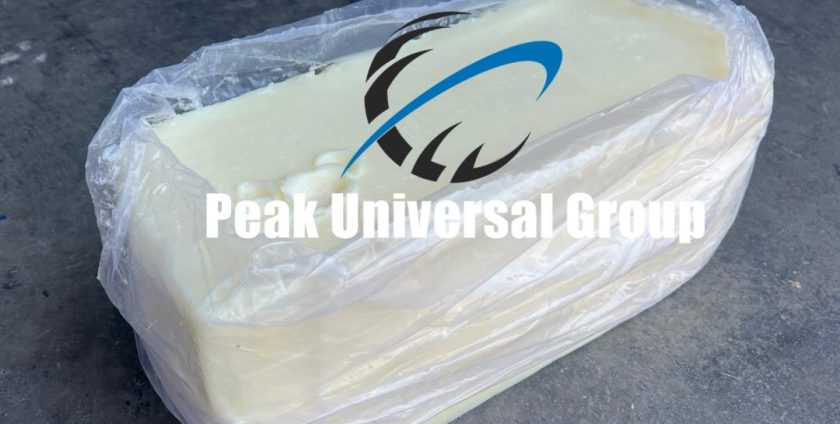
Microcrystalline Wax & Its Properties, Uses, Application & Benefits in Industries
Microcrystalline wax is a versatile and highly refined petroleum wax, known for its fine crystalline structure and unique physical properties. Unlike paraffin wax, microcrystalline wax has smaller and more branched crystal structures, making it more flexible and less brittle. This unique composition imparts distinct characteristics that make microcrystalline wax an invaluable material across various industries.
In this comprehensive blog, we will delve into the uses, applications, advantages, and disadvantages of microcrystalline wax, discuss its future prospects, and explain why Peak Universal Business is the top supplier for this essential material.
(Uses of microcrystalline wax in industries: Cosmetic, Pharmaceutical, Food, Packaging and Adhesives, Rubber, Candle Making, Industrial Applications)
What is Microcrystalline Wax?
Microcrystalline wax is a type of petroleum wax derived from the refining of crude oil. It is characterized by its fine crystal structure, higher melting point, and greater viscosity compared to other types of wax, such as paraffin wax. Microcrystalline waxes are typically darker, more flexible, and tackier, which makes them suitable for applications requiring high adhesive strength and plasticity.
Properties of Microcrystalline Wax
- Fine Crystal Structure: Provides flexibility and toughness.
- High Melting Point: Ensures stability under high temperatures.
- Adhesiveness: Superior adhesive properties make it suitable for binding and coating applications.
- Water Resistance: Excellent barrier against moisture.
- Oil Retention: Ability to hold and stabilize oils and other substances.
- Thermal Stability: Maintains integrity under thermal cycling.
Industrial Uses and Applications of Microcrystalline Wax
Industrial Uses and Applications of Microcrystalline Wax :Cosmetic Industry, Pharmaceutical Industry, Food Industry, Packaging and Adhesives Industry, Rubber Industry, Candle Making, Industrial Applications
1. Cosmetic Industry
The cosmetic industry extensively utilizes microcrystalline wax for its unique properties:
- Lipsticks and Lip Balms
Microcrystalline wax is used in lipsticks and lip balms for its ability to hold oils and pigments in a stable form, providing smooth application and a glossy finish. Its flexibility prevents the products from becoming too brittle.
- Creams and Lotions
In creams and lotions, microcrystalline wax acts as a thickening agent, providing the desired consistency and stability. It also helps in forming a protective barrier on the skin, retaining moisture.
- Hair Products
Microcrystalline wax is used in hair styling products like pomades and waxes. It provides hold and texture, making it easier to style hair while adding shine and preventing moisture loss.
2. Pharmaceutical Industry
The pharmaceutical industry benefits from the purity and stability of microcrystalline wax:
- Ointments and Salves
Microcrystalline wax is a common ingredient in medicinal ointments and salves due to its excellent binding properties and ability to form a protective barrier on the skin.
- Tablet Coatings
It is used as a coating material for tablets, ensuring a controlled release of active ingredients and protecting the tablet from moisture and environmental factors.
3. Food Industry
The food industry uses microcrystalline wax for its non-toxic and stable nature:
- Chewing Gum
Microcrystalline wax is a key component in chewing gum formulations, providing the desired texture and chewability. It also helps in maintaining the freshness of the product.
- Coatings for Fruits and Vegetables
It is used as an edible coating for fruits and vegetables to extend shelf life by reducing moisture loss and providing a glossy finish.
- Packaging
Microcrystalline wax is used in food packaging materials to provide moisture resistance and protect the contents from external contaminants.
4. Packaging and Adhesives Industry
The packaging and adhesives industry utilizes microcrystalline wax for its adhesive properties:
- Hot Melt Adhesives
Microcrystalline wax is a crucial component in hot melt adhesives, providing the necessary tackiness and flexibility for bonding various materials, including paper, cardboard, and plastics.
- Coatings for Paper and Cardboard
It is used as a coating for paper and cardboard products to enhance water resistance and provide a smooth surface finish.
5. Rubber Industry
The rubber industry benefits from the stabilizing and plasticizing properties of microcrystalline wax:
- Tire Manufacturing
Microcrystalline wax is added to tire formulations to improve flexibility, prevent cracking, and enhance the overall durability of the tires.
- Rubber Compounding
It is used in rubber compounding to improve processing, reduce viscosity, and enhance the overall properties of the rubber products.
6. Candle Making
In candle making, microcrystalline wax is used for its ability to hold fragrance and color better than other waxes:
- Container Candles
Microcrystalline wax is ideal for container candles, providing a smooth finish, good adhesion to containers, and a stable burn.
- Sculpted Candles
It is also used in sculpted and decorative candles for its flexibility and ability to hold intricate shapes and details.
7. Industrial Applications
Microcrystalline wax finds various industrial applications due to its stability and protective properties:
- Corrosion Protection
It is used as a protective coating for metals, providing a barrier against moisture and preventing corrosion.
- Electrical Insulation
Microcrystalline wax is used in electrical insulation applications, providing a stable and moisture-resistant barrier for wires and components.
- Polishing and Buffing
It is used in polishing and buffing compounds to enhance the finish of metals, plastics, and other materials, providing a high-gloss and smooth surface.
Industrial Uses and Applications of Microcrystalline Wax :Cosmetic Industry, Pharmaceutical Industry, Food Industry, Packaging and Adhesives Industry, Rubber Industry, Candle Making, Industrial Applications
Advantages of Microcrystalline Wax
1. Versatility
Microcrystalline wax is highly versatile, with applications across a wide range of industries, from cosmetics and pharmaceuticals to food and industrial uses.
2. Stability
Its thermal stability and resistance to moisture make it an ideal material for products exposed to varying environmental conditions.
3. Adhesive Properties
The superior adhesive properties of microcrystalline wax make it a key component in adhesives and coatings, providing strong bonds and durable finishes.
4. Flexibility
The fine crystalline structure imparts flexibility, making it suitable for applications requiring pliable and less brittle materials.
5. Non-Toxic
Microcrystalline wax is non-toxic and safe for use in food, cosmetics, and pharmaceuticals, ensuring consumer safety and regulatory compliance.
Disadvantages of Microcrystalline Wax
1. Cost
Microcrystalline wax can be more expensive than other types of wax, which may be a consideration for cost-sensitive applications.
2. Limited Availability
Its specialized nature means that it may not be as readily available as other common waxes like paraffin wax, potentially leading to supply challenges.
3. Environmental Impact
Being a petroleum-derived product, microcrystalline wax has an environmental footprint associated with its extraction and processing. Sustainable sourcing and recycling can help mitigate this impact.
Future Prospects of Microcrystalline Wax
1. Sustainable Sourcing
The future of microcrystalline wax lies in sustainable sourcing and environmentally friendly production methods. Innovations in refining processes and the use of renewable feedstocks can reduce its environmental impact.
2. Advanced Applications
Ongoing research and development are expected to uncover new applications for microcrystalline wax, particularly in advanced materials and high-performance coatings.
3. Enhanced Properties
Technological advancements are likely to enhance the properties of microcrystalline wax, making it even more versatile and effective in its various applications.
4. Market Growth
The demand for microcrystalline wax is expected to grow, driven by its unique properties and increasing use in high-value applications such as cosmetics, pharmaceuticals, and specialized industrial products.
Why Choose Peak Universal Business as Your Microcrystalline Wax Supplier?
Peak Universal Business stands out as a leading supplier of high-quality microcrystalline wax. Here are some reasons why you should choose them for your microcrystalline wax needs:
1. Quality Assurance
Peak Universal Business is committed to providing products that meet the highest quality standards. Their microcrystalline wax undergoes rigorous testing to ensure it meets the required specifications and performs reliably in various applications.
2. Industry Expertise
With extensive experience in the industry, Peak Universal Business has a deep understanding of the diverse applications and requirements of microcrystalline wax. They can offer expert guidance and support to help you find the right solution for your needs.
3. Reliable Supply Chain
Peak Universal Business has a robust supply chain that ensures timely delivery of products. Their global reach and efficient logistics enable them to meet the demands of clients worldwide.
4. Customer-Centric Approach
Customer satisfaction is a top priority for Peak Universal Business. They strive to build long-term relationships with their clients by offering personalized service, competitive pricing, and reliable support.
Conclusion
Microcrystalline wax is a versatile and essential material with a wide range of industrial applications. From cosmetics and pharmaceuticals to food, packaging, and industrial uses, its unique properties make it a valuable asset in various sectors. While it has some disadvantages, the ongoing advancements and sustainable practices in the industry promise a bright future for microcrystalline wax.
When looking for a reliable supplier, Peak Universal Business stands out with their commitment to quality, industry expertise, and customer-centric approach. Whether you need microcrystalline wax for cosmetics, food packaging, or industrial applications, Peak Universal Business is your trusted partner for high-quality solutions.
Industrial Uses and Applications of Microcrystalline Wax :Cosmetic Industry, Pharmaceutical Industry, Food Industry, Packaging and Adhesives Industry, Rubber Industry, Candle Making, Industrial Applications
You can Read More about this product Here:
Paraffin for Manufacturing Microcrystalline Wax
What is Microcrystalline wax and its uses & benefits
Microcrystalline Wax uses & Applications in Plastic Industry
If You have any other Query or Question you want to ask, Please don’t hesitate to Contact Us.
- 0 comment
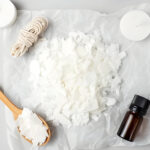
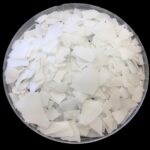
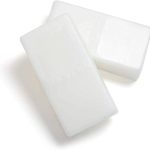
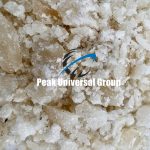
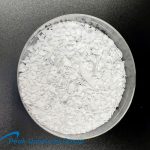
Leave a Reply